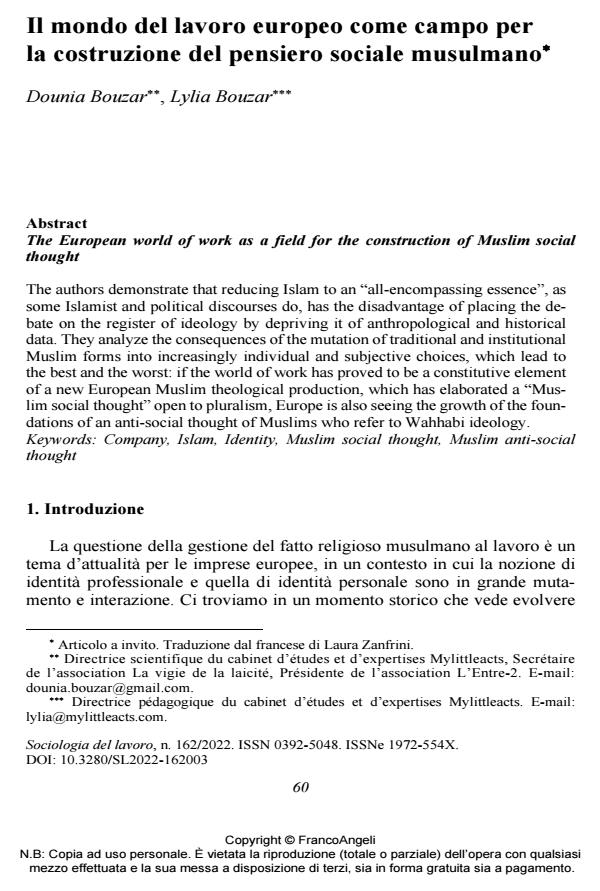The European world of work as a field for the construction of Muslim social thought
Journal title SOCIOLOGIA DEL LAVORO
Author/s Dounia Bouzar, Lylia Bouzar
Publishing Year 2022 Issue 2022/162
Language Italian Pages 19 P. 60-78 File size 233 KB
DOI 10.3280/SL2022-162003
DOI is like a bar code for intellectual property: to have more infomation
click here
Below, you can see the article first page
If you want to buy this article in PDF format, you can do it, following the instructions to buy download credits

FrancoAngeli is member of Publishers International Linking Association, Inc (PILA), a not-for-profit association which run the CrossRef service enabling links to and from online scholarly content.
The authors demonstrate that reducing Islam to an "all-encompassing essence", as some Islamist and political discourses do, has the disadvantage of placing the debate on the register of ideology by depriving it of anthropological and historical data. They analyze the consequences of the mutation of traditional and institu-tional Muslim forms into increasingly individual and subjective choices, which lead to the best and the worst: if the world of work has proved to be a constitu-tive element of a new European Muslim theological production, which has elabo-rated a "Muslim social thought" open to pluralism, Europe is also seeing the growth of the foundations of an anti-social thought of Muslims who refer to Wahhabi ideology.
Keywords: Company, Islam, Identity, Muslim social thought, Muslim anti-social thought
Dounia Bouzar, Lylia Bouzar, Il mondo del lavoro europeo come campo per la costruzione del pensiero sociale musulmano in "SOCIOLOGIA DEL LAVORO " 162/2022, pp 60-78, DOI: 10.3280/SL2022-162003